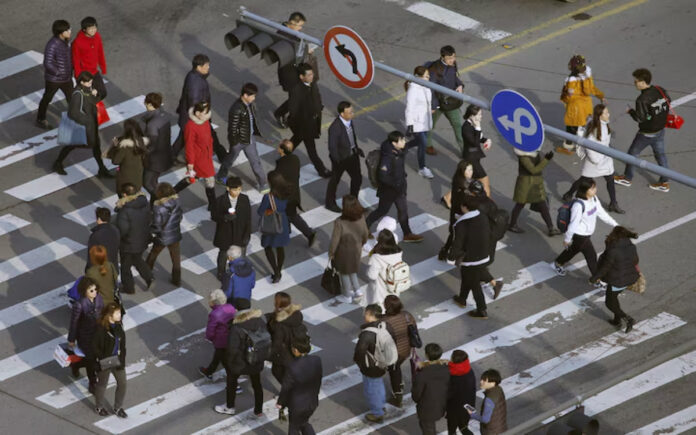Seoul: South Korea’s birthrate is on track to rise in 2024 for the first time in nine years, a positive shift attributed to a rebound in marriages that had been delayed due to the COVID-19 pandemic.
The country, which has long recorded the world’s lowest fertility rates, saw a 3% increase in the number of newborns between January and November 2024, reaching 220,094, according to government data released on Wednesday. In contrast, 2023 had seen a 7.7% decline in births, marking the eighth consecutive year of decreases and leaving South Korea with the lowest annual fertility rate globally at just 0.72.
Marriages See Rebound
The increase in births is closely linked to a rise in marriages in 2023, the first uptick in twelve years. During the pandemic, many couples postponed their weddings, but with the easing of restrictions, marriage rates have begun to recover. South Korea’s birthrate has traditionally been highly correlated with marriage, as marriage is often considered a prerequisite for having children. This relationship usually shows a one- to two-year lag.
In a government survey conducted last year, 62.8% of South Koreans expressed opposition to having children outside of marriage, although this figure is down from 77.5% a decade ago.
Measures to Encourage Births
The rise in marriages follows a series of initiatives by the government to address South Korea’s demographic challenges. In 2023, the administration of then-President Yoon Suk Yeol, who declared a “national demographic crisis,” introduced a variety of policies aimed at encouraging young people to marry and have children. These included financial incentives such as tax cuts and subsidies. One such measure is a one-time tax cut of 500,000 won ($349.35) for couples marrying between 2024 and 2026.
Also Read | Japan Seeks Dual-Use Technology Firms to Strengthen Military Capabilities
Despite the rising marriage numbers, South Korea’s fertility rate remains one of the lowest in the world, and the government has pledged to take a more comprehensive approach to tackle the country’s demographic issues.
Neighboring China’s Births Rise as Well
In neighboring China, births also saw an increase, rising by 5.8% to 9.54 million in 2024. This increase was also driven by delays in marriages and childbirth during the pandemic.
Also Read | $1.5 Billion Amazon Protection Initiative Launched at Davos
The final official birthrate data for South Korea in 2024 will be released on February 26.



